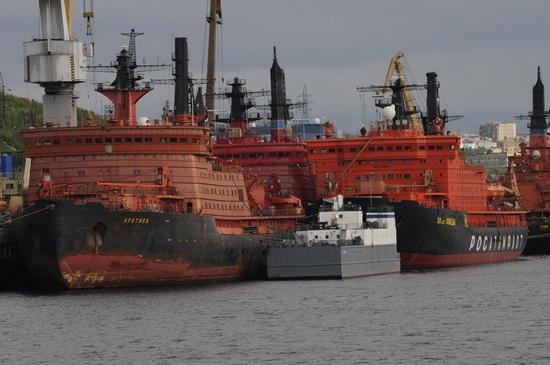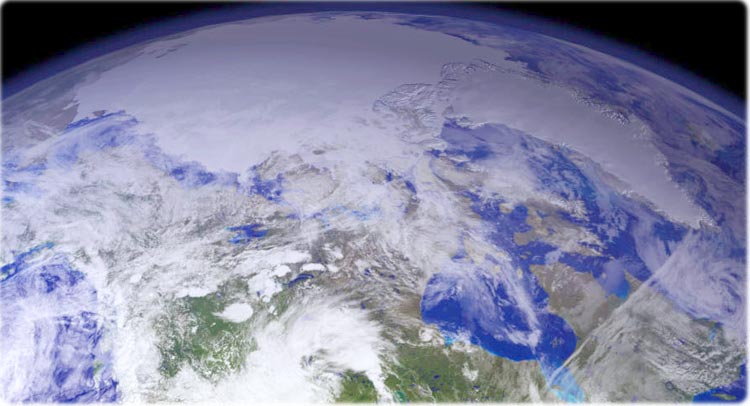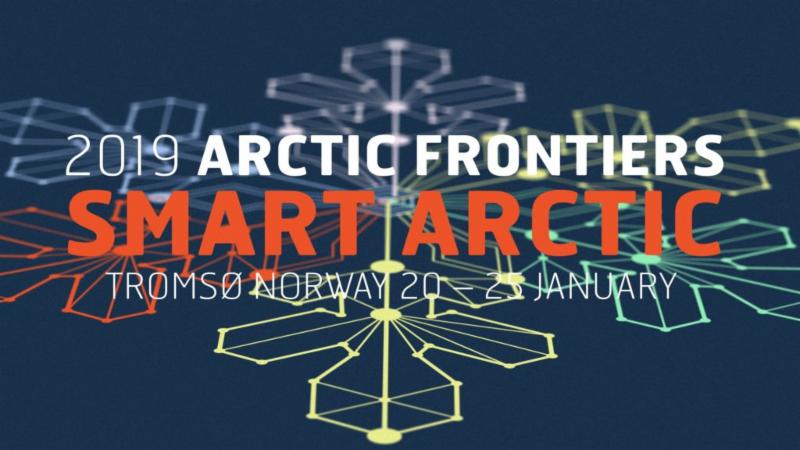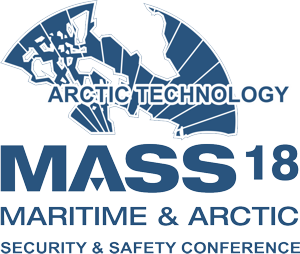|
|
|
|
|
|
|
|
** New this week ** Effects of Temperature on Fish Sex Determination: Potential Bioindictators of Global Climate Change, November 1, 2018 (Webinar). This is part of the OneNOAA Science Seminar Series. Sex determination in several fishes such as those from Atheriniform families is strongly dependent on the water temperature experienced during early life (so-called temperature-dependent sex determination or TSD). In recent years, water temperature change due to climate change has been concerning on a world-wide level. Fish that have TSD are expected to be seriously affected (e.g. extreme unbalanced sex ratios). Our recent studies have shown that some Atheriniform species possess a major, if not master, testis determining gene, the Y-chromosome-linked anti-Müllerian hormone (amhy). This discovery now makes it possible to detect mismatches (sex reversals) between genotypic (XX or XY) and phenotypic (ovary or testis) sex and demonstrate effects of temperatures on sex determination in wild populations. Using such high temperature sensitivity in sex determination/differentiation and the Y-chromosome linked gene marker, we have been working to establish Atheriniform fish species as bioindicators for the impacts of global warming/climate change on fish reproduction worldwide.
|
Media
 Is the Arctic Set to Become a Main Shipping Route? Is the Arctic Set to Become a Main Shipping Route? Could it herald an era of more cargo shipping around the top of the world? Back in the 19th Century there was a race to map and navigate the Northwest Passage through the Arctic Ocean as a shortcut between the North Atlantic and North Pacific. Explorers would take ships up Greenland's west coast, then try to weave through Canada's Arctic islands, before going down the Bering Strait between Alaska and Russia. BBC News Countries Urge Increased International Research in the Arctic. Ministers from 18 nations and representatives from Arctic indigenous groups on Friday called for increased efforts for international scientific collaboration in the Arctic. The officials also acknowledged the effects of global warming in the rapidly changing Arctic through a joint statement joint statement. However, the statement sidestepped attributing the warming to human activities. "We strongly note the need for increased effort and urgent attention supporting further international scientific collaboration focusing on the warming trend in the Arctic," conveys the nonbinding joint statement, issued following the second Arctic Science Ministerial meeting. EOS  Climate Change and the Arctic: University of Alberta to Host French Reps at Roundtable Focusing on Polar Regions. Climate Change and the Arctic: University of Alberta to Host French Reps at Roundtable Focusing on Polar Regions. Understanding the impact of climate change on the Arctic Ocean and the earth's polar regions will be the focus of a Franco-Canadian roundtable discussion at the University of Alberta next week. Co-hosted by the Consulate of France in Vancouver and UAlberta North, the panel will include a variety of scientists, representatives of NGOs and institutions from France and Canada. "Our concerns about oceans and climate are similar worldwide," said Paul Myers, professor in the University of Alberta's Department of Earth and Atmospheric Sciences. Edmonton Journal Rosturism Sets Up Arctic Tourism Working Group. The Federal Agency for Tourism (Rosturism) set up a working group to promote tourism in the Russian Arctic in the domestic and international markets, according to an agency press release. "A working group was created to assist in building regional tourism clusters and promoting tourism in the Russian Arctic, both in the domestic and international tourism markets," the press release states. The working group was established under an executive order by the agency head, Oleg Safonov. The Arctic
|
|
Future Events
** New this week ** Coastal Wetlands Reduce Disaster Risk, Protect Biodiversity, and Promote Human Health and Well-Being, November 6, 2018 (Webinar). This is part of the OneNOAA Science Seminar Series. There is substantial, growing literature that details positive human health effects, psychological and physiological, of exposure to "nature," including "green" and "blue space," with evidence suggesting that diversity of species or environments may have specific positive human health benefits. These health benefits are important ecosystem services provided by healthy ecosystems. In this presentation, we discuss several critical ecosystem services provided by wetlands including disaster risk reduction, with an emphasis on benefits to human health and well-being. Impacts to human health via damage to ecosystem services from disasters have rarely been considered in disaster planning or mitigation, nor have the health benefits been part of the framework for planning urban greenspaces and land-use. Coastal wetlands can be part of "natural and nature-based" solutions, minimizing the impacts of disasters by buffering coastal communities from storms and erosion and absorbing flood waters. In addition, mental and physical health benefits of experiencing healthy wetlands could offset some stress and disease encounters related to disasters.
** New this week ** Northern rock sole recruitment response to winds and temperature in the eastern Bering Sea, November 7, 2018 (Webinar). This seminar is part of NOAA's EcoFOCI bi-annual seminar series focused on the ecosystems of the North Pacific Ocean, Bering Sea and U.S. Arctic to improve understanding of ecosystem dynamics and applications of that understanding to the management of living marine resources. This webinar will consider issue of creating environment-recruitment models for short and long-term forecasting of rock sole.
aim of this Government of Canada and the Government of Newfoundland and Labrador supported international conference is to promote stakeholder collaboration, technological innovation, harsh environment research & development, and world-class education efforts that are contributing to both Maritime and Arctic issues. This two day conference will draw a diverse group of speakers and attendees representing government, military, Canadian and U.S. Coast Guard, industry, academic leaders, Northern Leaders, research and other key stakeholders. We hope you can join us to be a part of this important dialogue.
** New this week ** Causes for the record low sea-ice extent in the Bering Sea in 2018, November 19, 2018 (Webinar). This seminar is part of NOAA's EcoFOCI bi-annual seminar series focused on the ecosystems of the North Pacific Ocean, Bering Sea and U.S. Arctic to improve understanding of ecosystem dynamics and applications of that understanding to the management of living marine resources. This webinar will be an in-depth look at the driving factors of a warm Bering Sea including ice arrival, extent, and implications.
** New this week ** Modeled impact of coastal biogeochemical processes and climate variability on ocean acidification in the Bering Sea, November 28, 2019 (Webinar). This seminar is part of NOAA's EcoFOCI bi-annual seminar series focused on the ecosystems of the North Pacific Ocean, Bering Sea and U.S. Arctic to improve understanding of ecosystem dynamics and applications of that understanding to the management of living marine resources. The webinar will be an examination of spatial and temporal variability of the carbon cycle from 2003-2012 and the connection to ocean acidification.
American Geophysical Union Fall meeting, December 10-14, 2018 (Washington, DC USA). The AGU 2018 Fall Meeting will mark another dynamic year of discovery in Earth and space science, serve as the advent of AGU's Centennial year, and provide a special opportunity to share our science with world  leaders in Washington, D.C. As the largest Earth and space science gathering in the world, the Fall Meeting places you in the center of a global community of scientists drawn from myriad fields of study whose work protects the health and welfare of people worldwide, spurs innovation, and informs decisions that are critical to the sustainability of the Earth.
USARC Commissioner Jacqueline Richter-Menge to deliver the Nye Lecture at the 2018 AGU Fall Meeting. The US Arctic Research Commission (USARC) is pleased to announce that Commissioner Jacqueline Richter-Menge will present this year's Nye Lecture, titled "A Career of Change," at the Fall Meeting of the American Geophysical Union (AGU) in Washington, DC at 2:50 pm on Tuesday, December 11, 2018 in the Marquis room of the Marriott Marquis Hotel, 901 Massachusetts Ave. NW, Washington, DC 20001.
ArcticNet: Annual Scientific Meeting 2018, December 10-14, 2018 (Ottawa, ON Canada). Canada's North is experiencing unprecedented change in its sea and terrestrial ice, permafrost and ecosystems under the triple pressures of climate change, industrialization and modernization. The impacts of these pressures can be seen on food and energy security, shipping, sovereignty, northern community health and well-being, and sustainable development and resource exploitation. All these issues have brought the North to the forefront of national and international agendas. Building on the success of its previous Annual Scientific Meetings and International Arctic Change Conferences, the Arctic Network of Centers of Excellence announces the 14th ArcticNet Annual Scientific Meeting.
 Arctic Frontiers, January 20-25, 2019 (Tromso, Norway). The Arctic Frontiers is a global scientific conference on economic, societal, and environmental sustainable growth. This year's theme will be "Smart Arctic," with a pan-arctic emphasis, and an effort to build new partnerships across nations, generations and ethnic groups. Arctic Frontiers provides a forum for dialogue and communication between science, government and industry. The plenary program will have five main sessions: State of the Arctic, Blue Growth, Smart Solutions, Bridging the Gap, and Arctic business prospects. An abstract-driven science program will address Plastics in the Ocean, the Future of Governance and Handling Vulnerability in Arctic Ecosystems, State of the Arctic and A Smart Arctic Future.
 of the AAG includes over 8,500 geographers converging from the U.S., Canada, and nearly 60 other countries in a typical year including geographers, GIS specialists, environmental scientists, and other leaders for the latest in research and applications in geography, sustainability, and GIScience. of the AAG includes over 8,500 geographers converging from the U.S., Canada, and nearly 60 other countries in a typical year including geographers, GIS specialists, environmental scientists, and other leaders for the latest in research and applications in geography, sustainability, and GIScience.
|
|

  
4350 N. Fairfax Drive, Suite 510
Arlington, VA 22203, USA
External links in this publication, and on the USARC's World Wide Web site ( www.arctic.gov) do not constitute endorsement by the US Arctic Research Commission of external Web sites or the information, products or services contained therein. For other than authorized activities, the USARC does not exercise any editorial control over the information you may find at these locations. These links are provided consistent with the stated purpose of this newsletter and the USARC Web site.
|
|
|
|
|
|
|
|
|
 Is the Arctic Set to Become a Main Shipping Route? Could it herald an era of more cargo shipping around the top of the world? Back in the 19th Century there was a race to map and navigate the Northwest Passage through the Arctic Ocean as a shortcut between the North Atlantic and North Pacific. Explorers would take ships up Greenland's west coast, then try to weave through Canada's Arctic islands, before going down the Bering Strait between Alaska and Russia. BBC News
Is the Arctic Set to Become a Main Shipping Route? Could it herald an era of more cargo shipping around the top of the world? Back in the 19th Century there was a race to map and navigate the Northwest Passage through the Arctic Ocean as a shortcut between the North Atlantic and North Pacific. Explorers would take ships up Greenland's west coast, then try to weave through Canada's Arctic islands, before going down the Bering Strait between Alaska and Russia. BBC News Climate Change and the Arctic: University of Alberta to Host French Reps at Roundtable Focusing on Polar Regions. Understanding the impact of climate change on the Arctic Ocean and the earth's polar regions will be the focus of a Franco-Canadian roundtable discussion at the University of Alberta next week. Co-hosted by the Consulate of France in Vancouver and UAlberta North, the panel will include a variety of scientists, representatives of NGOs and institutions from France and Canada. "Our concerns about oceans and climate are similar worldwide," said Paul Myers, professor in the University of Alberta's Department of Earth and Atmospheric Sciences. Edmonton Journal
Climate Change and the Arctic: University of Alberta to Host French Reps at Roundtable Focusing on Polar Regions. Understanding the impact of climate change on the Arctic Ocean and the earth's polar regions will be the focus of a Franco-Canadian roundtable discussion at the University of Alberta next week. Co-hosted by the Consulate of France in Vancouver and UAlberta North, the panel will include a variety of scientists, representatives of NGOs and institutions from France and Canada. "Our concerns about oceans and climate are similar worldwide," said Paul Myers, professor in the University of Alberta's Department of Earth and Atmospheric Sciences. Edmonton Journal
 must-attend event to gain a wide perspective on challenges, opportunities and policies related to the Arctic and North Atlantic maritime environments. The
must-attend event to gain a wide perspective on challenges, opportunities and policies related to the Arctic and North Atlantic maritime environments. The 
